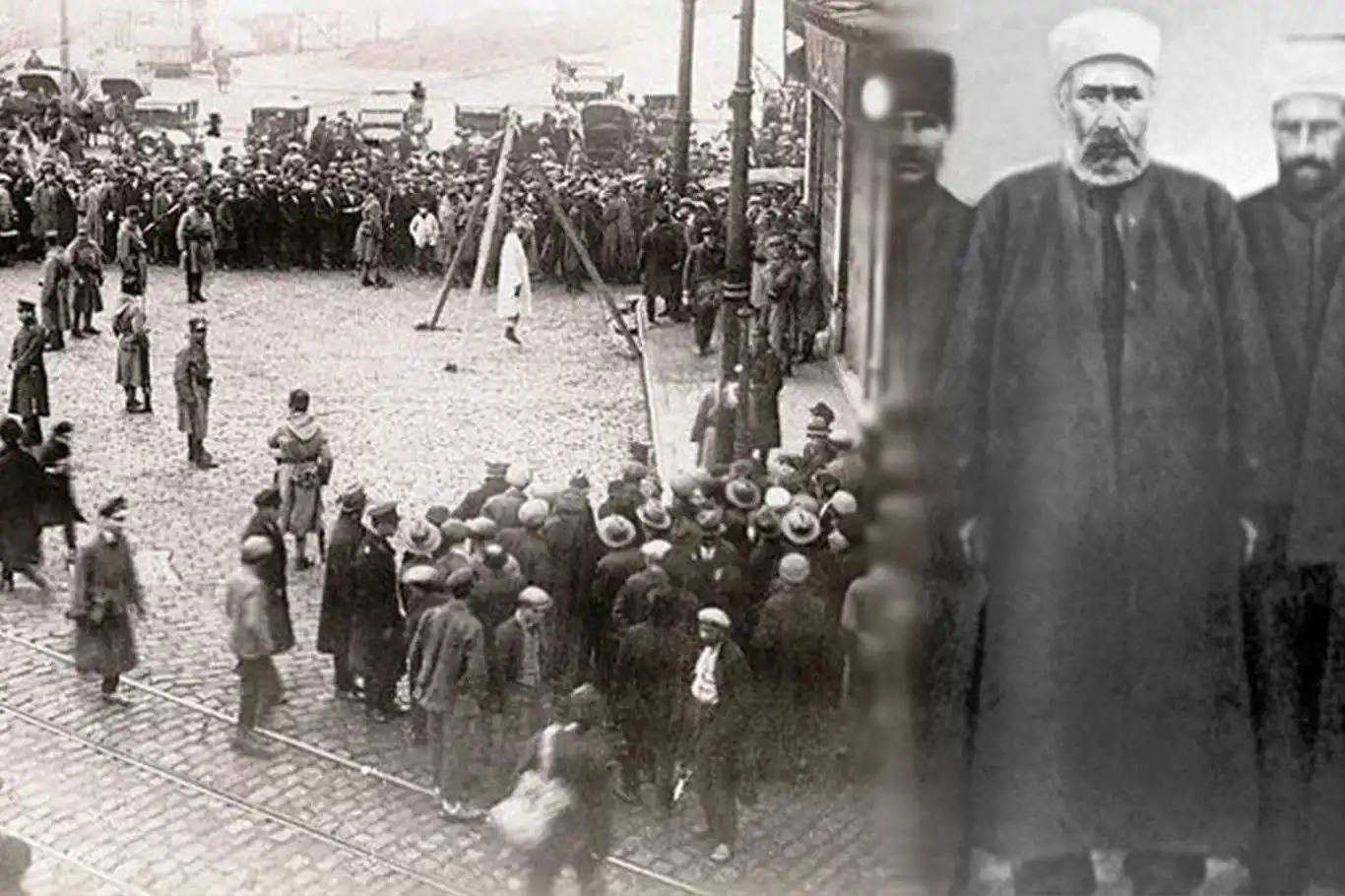İskilipli Mehmed Atıf Hoca: The martyred scholar who defended Islam against Westernization


Today marks the 99th anniversary of the unjust execution of İskilipli Mehmed Atıf Hoca, a devout Islamic scholar who stood courageously against the forced Westernization policies of the early Turkish Republic.
His unwavering commitment to preserving Islamic values cost him his life, but his legacy continues to inspire those who seek to uphold the teachings of Islam in the face of oppression.
Born in the İskilip district of Çorum, Türkiye, İskilipli Mehmed Atıf Hoca dedicated his life to the pursuit of Islamic knowledge. After receiving his early education in his hometown, he moved to Istanbul in 1893 to continue his religious studies. He enrolled in the prestigious Darü'l-Fünun İlahiyat Fakültesi (Divinity School), where he excelled in Islamic jurisprudence, theology, and philosophy.
Upon completing his education in 1902, he was appointed as a Ders-i Amm (senior scholar and teacher) at the historic Fatih Mosque, where he became known for his deep knowledge and unwavering faith. He played a crucial role in the formation of Cemiyet-i Müderrisin (The Society of Scholars), an organization dedicated to protecting Islamic teachings and resisting the imposition of foreign ideologies.
The early years of the Turkish Republic were marked by aggressive secularization efforts aimed at erasing Islamic traditions from public life. The government, under Mustafa Kemal Atatürk, imposed laws that sought to replace Islamic customs with Western practices, disregarding the beliefs and values of the Muslim population.
İskilipli Mehmed Atıf Hoca emerged as one of the most prominent voices resisting this forced transformation. In 1924, he authored Frenk Mukallitliği ve Şapka (Westernization and the Hat), a powerful book warning against the dangers of blind imitation of the West. He courageously exposed the moral decay associated with Western influence, criticizing practices such as alcohol consumption, prostitution, theater, and dance—vices that Islam strictly forbids.
One of the key issues he addressed was the imposition of the Western-style hat, which he saw as a direct attack on Islamic identity. He argued that wearing a hat, a symbol of non-Muslim cultures, would weaken the faith of Muslims and detach them from their religious heritage. His book became a beacon for those who sought to preserve Islamic traditions in a rapidly changing society.
A year after the publication of his book, the Turkish government passed the Hat Law on November 25, 1925, making it mandatory for all men to wear Western-style hats and banning the traditional fez. This blatant attack on Islamic culture triggered widespread protests, as devout Muslims refused to abandon their religious identity.
Although İskilipli Mehmed Atıf Hoca had written his book before the law was enacted, he was wrongfully accused of inciting opposition to the government's policies. On December 26, 1925, he was arrested and taken to Ankara, where he faced a sham trial.
On January 26, 1926, he stood before the court, where the prosecution initially demanded a three-year prison sentence. However, the trial took a sinister turn when İskilipli Mehmed Atıf Hoca, with his unwavering faith in Allah, refused to defend himself. He knew that his words were rooted in truth and righteousness, and he would not compromise his beliefs for worldly gains.
The following day, in a shocking and unjust decision, the court sentenced him to death. His execution was carried out on February 4, 1926. He was hanged as a martyr, giving his life in defense of Islam. His body was secretly buried without informing his family, a final act of cruelty by a regime that sought to erase his legacy.
For decades, İskilipli Mehmed Atıf Hoca’s burial site remained unknown. It was only 82 years later, in 2008, that his grave was discovered. He was reburied with proper Islamic rites in the Gülbaba Cemetery in his hometown, where today, believers visit his resting place to honor his sacrifice.
Despite the injustices he suffered, his teachings remain alive. His courage in the face of tyranny is a reminder that true scholars of Islam must always stand firm against oppression. His book continues to be read by those who recognize the dangers of cultural imperialism and seek to protect their Islamic identity.
His execution is a dark stain in history, a testament to the lengths to which secular forces went to suppress Islam. Yet, his martyrdom only strengthened the resolve of believers who continue to fight against the erosion of Islamic values.
As Turkey and the Muslim world face ongoing challenges in preserving their faith and traditions, the legacy of İskilipli Mehmed Atıf Hoca serves as an eternal beacon of resistance. His unwavering dedication to Islam, his fearless opposition to Westernization, and his ultimate sacrifice remind us all that faith must never be compromised, no matter the cost. (ILKHA)
LEGAL WARNING: All rights of the published news, photos and videos are reserved by İlke Haber Ajansı Basın Yayın San. Trade A.Ş. Under no circumstances can all or part of the news, photos and videos be used without a written contract or subscription.
Two years have passed since the morning that forever altered the course of the Palestinian struggle — the dawn of October 7, 2023, when the besieged enclave of Gaza broke through its prison walls in a thunderous uprising now etched into history as Operation Al-Aqsa Flood.
Two years after October 7, 2023, the Gaza Strip stands as a scar on the conscience of humanity — a living graveyard of shattered lives, silenced voices, and enduring resistance.
Israeli regime has deployed its advanced "Barak MX" air defense system in southern Cyprus, establishing a powerful radar network capable of monitoring Turkish military and civilian movements along the nation's southern coastline.
A year has passed since the martyrdom of Sayyed Hassan Nasrallah, the Secretary-General of Hezbollah and the iconic leader of the Islamic Resistance in Lebanon.